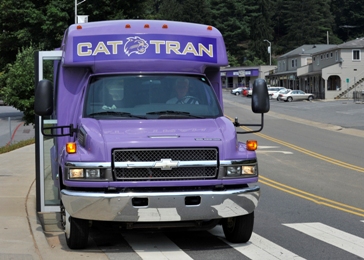Trustees approve 1.7 percent increase in student fees, rates for 2019-20
The Western Carolina University Board of Trustees approved a schedule of fees and rates for the 2019-20 academic year that would increase the cost of mandatory fees paid by all students by 1.7 percent, or $48 per year.
The proposed fee increases, unanimously approved by the board at its regular quarterly meeting Friday, Dec. 7, now go to the University North Carolina Board of Governors for approval.
Among the fee changes are an $8 increase in the health services fee, from $306 to $314 a year, to support the mounting physical and mental health needs of a growing student body; and a $14 increase in the student activity fee, from $618 to $632 a year, to help cover the rising costs of personnel expenses, including salary and benefits increases for Division of Student Affairs employees that are not supported by state dollars, and to fund maintenance and renovations at facilities such as A.K. Hinds University Center, the Campus Recreation Center and intramural fields.
Also included is a $26 per year increase in the university’s athletics fee, from $756 to $782 annually beginning next fall. Additional revenue from the fee increase will help the athletics department cover the cost of state-mandated salary increases for its employees.
Randy Eaton, athletics director, reminded the board during committee meetings on Thursday, Dec. 6, that when the N.C. General Assembly increases the salary of state employees, auxiliary units of the university – such as athletics – do not receive additional state funding to pay for those raises. The proposed fee change would cover the cost of salary increases that have occurred since the last athletics fee increase in 2016.
 The board also approved a Student Government Association-initiated $5 increase (4.24
percent) in WCU’s transportation fee to fund the addition of Cat-Tran campus shuttle
service on weekends and a $4 increase (1.36 percent) in the book rental fee.
The board also approved a Student Government Association-initiated $5 increase (4.24
percent) in WCU’s transportation fee to fund the addition of Cat-Tran campus shuttle
service on weekends and a $4 increase (1.36 percent) in the book rental fee.
Residence hall room rates at WCU will go up by an average of 4.2 percent beginning with the 2019 fall semester, with costs ranging from $5,028 per year for a standard double-occupancy room to $7,722 for a private room in Balsam and Blue Ridge residence halls. The rate increases will help the university cover the costs of rising operational expenses and build reserves needed to renovate or replace some of WCU’s older residence halls, said Sam Miller, vice chancellor for student affairs.
The board also set room rates of $6,316 per year for double occupancy to $7,368 for a private room in the newest addition to WCU’s on-campus housing inventory, the 400-bed facility on upper campus named Levern Hamlin Allen Hall, in honor of the university’s first African-American student.
Meal plan charges will rise by an average of 4.1 percent next academic year, with a new cost of $4,136 per year for the most-popular dining plan option. The increases are needed to help meet the expenses associated with food and dining service personnel, Miller said.
With the fee and rate schedule approved by the board, WCU’s total cost of attendance in 2019-20, including standard residence hall accommodations and the most-popular meal plan, will be $13,178 per year (fall and spring semesters) for a typical undergraduate student from North Carolina, a 3.45 percent increase over the current academic year total annual cost of $12,738.
Until last year, WCU’s Board of Trustees established tuition for the following school year at its December meeting, but actions by the N.C. General Assembly in 2016 altered that longstanding practice. WCU is among three UNC institutions selected for inclusion in the NC Promise tuition plan, which has reduced out-of-pocket tuition costs for in-state undergraduate students at those three schools to $500 per semester beginning with the current fall semester.
In addition to NC Promise, the 2016 budget legislation also locks in tuition expenses at all other UNC System schools so that students will pay the same amount each semester for four years and caps the cumulative total of increases in all mandatory student fees to 3 percent per year. WCU did not seek an increase in fees last year, and the request for a 1.7 percent increase in mandatory fees is well below that legislative cap.
The action by the trustees comes after a series of meetings held by a campus tuition and fee committee, including two open campus discussions, a town hall sponsored by the Student Government Association, an interactive live video-streamed session hosted on the university’s social media platforms, and an online survey that prompted nearly 1,000 responses.
Not surprisingly, the survey showed that responding students were not in favor of most of the proposed increases, Miller said. The students did express mostly positive support for the NC Promise tuition plan, with some graduate students stating they wished that it also applied to their tuition, he said.
The committee recommended approval of all rate and fee increases submitted to the trustees, with the exception of the athletics fee.
In other action, the trustees:
* Approved a legislative policy agenda for the 2019 session that includes, in priority order, seeking salary increases for faculty and staff; seeking the second $16.5 million installment needed to replace WCU’s aging steam plant, which provides hot water and heat to most of campus; additional funding for the N.C. Promise program to cover tuition costs during summer school; and adequate resources to address critical repair and renovation projects at WCU.
* Approved a request for exemption from a UNC System policy capping the number of credit hours for baccalaureate degree programs at 120 hours for certain programs in engineering, education and nursing that require additional courses beyond the 120-hour limit for accreditation purposes.
* Returned a proposed design for new residence halls on the lower campus (to eventually replace Scott and Walker halls) to architects for revisions to more closely align with current campus standards.
* Approved a request to UNC System leadership to delegate to WCU the maximum allowable authority to acquire or dispose of real property by lease; current policy allows that to occur if the lease term is for a term of not more than 10 years.

